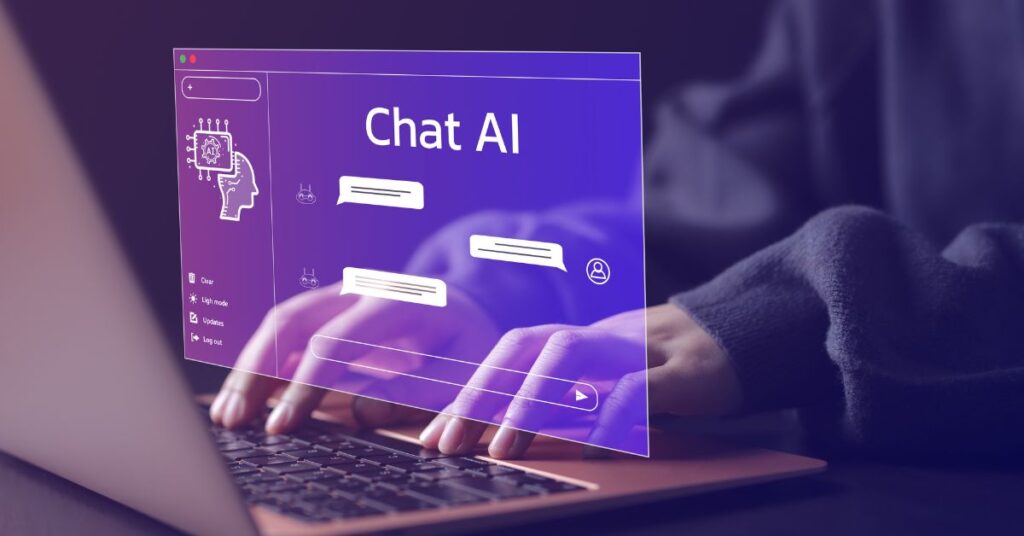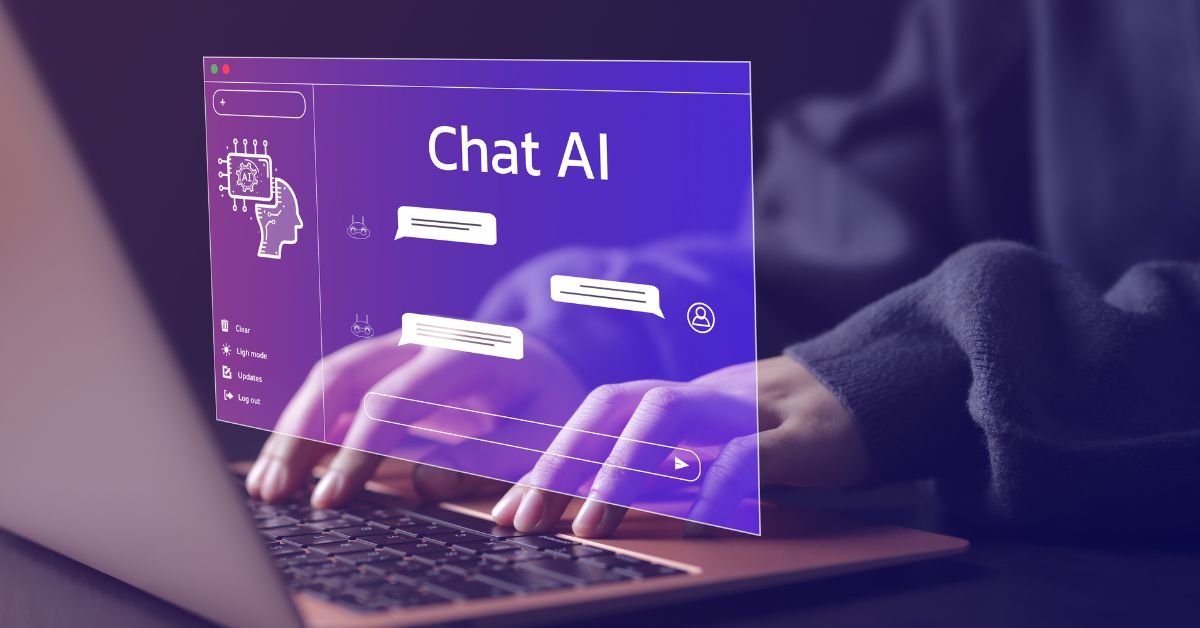Today, AI software is readily available to anyone with an internet connection and the desire to innovate. But what exactly is AI software, and how can it benefit you?

AI Software is Easier Than Ever
AI software encompasses a wide range of applications that use artificial intelligence techniques to perform tasks that would typically require human intelligence. These tasks can include anything from recognizing patterns in data to understanding natural language or making predictions based on past experiences. The key to the widespread adoption of AI software lies in its ability to automate processes, increase efficiency, and unlock insights that were previously hidden in vast amounts of data.1
8 Ways AI Software Can Help You
These eight ways showcase the versatility and impact of AI software in various domains, illustrating its potential to transform how we work, live, and interact with technology.
- Automating Repetitive Tasks: One of the most significant benefits of AI software is its ability to automate repetitive tasks, freeing up valuable time for more complex and creative endeavors. Whether it’s sorting through emails, processing invoices, or updating spreadsheets, AI-powered tools can handle these mundane tasks with ease, allowing you to focus on more meaningful work.2
- Personalizing User Experiences: AI software can analyze user data to personalize experiences in various applications. From recommending products based on past purchases to tailoring news feeds to individual interests, AI algorithms can deliver content that is relevant and engaging to each user, enhancing satisfaction and retention.
- Improving Decision Making: By analyzing large datasets and identifying patterns and trends, AI software can help businesses make more informed decisions. Whether it’s predicting customer preferences, optimizing supply chains, or identifying potential risks, AI algorithms can provide valuable insights that enable organizations to stay ahead of the competition.
- Enhancing Customer Service: AI-powered chatbots and virtual assistants are revolutionizing customer service by providing instant support around the clock. These intelligent agents can answer questions, resolve issues, and even anticipate customer needs, delivering a seamless and efficient service experience.
- Optimizing Marketing Campaigns: AI software can analyze consumer behavior and market trends to optimize marketing campaigns for maximum impact. By identifying the most effective channels, messaging, and timing, AI algorithms can help businesses reach their target audience more effectively and drive better results.
- Increasing Productivity: AI-powered productivity tools can streamline workflows and boost productivity across various industries. From scheduling meetings and organizing tasks to generating reports and analyzing data, these tools can automate routine tasks and empower workers to focus on high-value activities.
- Enhancing Healthcare: AI software is revolutionizing healthcare by enabling more accurate diagnoses, personalized treatment plans, and predictive analytics. From analyzing medical images to monitoring patient vitals, AI algorithms can assist healthcare professionals in providing better care and improving patient outcomes.
- Driving Innovation: AI software is fueling innovation across industries by enabling the development of new products and services that were previously unimaginable. From self-driving cars and smart appliances to advanced robotics and virtual assistants, AI technology is reshaping the way we live, work, and interact with the world around us.
3 Tips for Using AI Software
These three tips provide a strategic framework for maximizing the effectiveness of AI software in your organization, guiding you towards successful implementation and sustainable growth.
- Start Small: When implementing AI software, it’s essential to start small and focus on solving specific problems or addressing particular needs. By starting with manageable projects, you can gain valuable experience and demonstrate the value of AI to stakeholders before scaling up to more significant initiatives.
- Invest in Training: AI software may be easier to use than ever, but it still requires a certain level of expertise to deploy and maintain effectively. Investing in training for yourself or your team can help ensure that you get the most out of your AI investments and avoid common pitfalls.
- Prioritize Data Quality: The success of AI software depends heavily on the quality of the data it receives. It’s crucial to prioritize data quality by ensuring that your data is clean, accurate, and relevant to the tasks at hand. Additionally, you should establish processes for ongoing data collection, validation, and maintenance to ensure that your AI models remain effective over time.
Types of AI Software To Try Now
Let’s explore some compelling types of AI software that you can explore and integrate into your workflows today:
- Chatbots and Virtual Assistants: Chatbots and virtual assistants leverage natural language processing (NLP) and machine learning algorithms to provide instant support and automate customer interactions. Whether it’s answering queries, scheduling appointments, or processing orders, these AI-powered assistants enhance customer service and streamline communication channels.3
- Predictive Analytics Tools: Predictive analytics software uses AI algorithms to analyze historical data and forecast future trends and outcomes. From predicting customer behavior to optimizing inventory management, these tools provide valuable insights that empower informed decision-making and proactive strategy formulation.
- Image and Video Recognition Software: Image and video recognition software employ computer vision algorithms to analyze and interpret visual content. Whether it’s identifying objects in images, detecting anomalies in surveillance footage, or enhancing medical diagnostics with image analysis, these AI-powered tools offer a wide range of applications across industries.
- Natural Language Processing (NLP) Platforms: NLP platforms enable computers to understand, interpret, and generate human language. From sentiment analysis and language translation to text summarization and content generation, these tools unlock the power of unstructured text data, enabling more efficient information processing and communication.
- Recommendation Engines: Recommendation engines utilize machine learning algorithms to analyze user preferences and behavior and provide personalized recommendations. Whether it’s recommending products on e-commerce platforms, suggesting movies on streaming services, or curating content on social media, these AI-driven engines enhance user experiences and drive engagement.
- Robotic Process Automation (RPA) Software: RPA software automates repetitive and rule-based tasks by mimicking human interactions with digital systems. From data entry and report generation to invoice processing and account reconciliation, these AI-powered bots streamline workflows, increase efficiency, and reduce human error.
See AI Software Now
As AI software continues to evolve and mature, the possibilities for its applications are virtually limitless. Whether you’re a business looking to gain a competitive edge or an individual seeking to streamline your daily tasks, AI software can help you achieve your goals more efficiently and effectively than ever before. So why wait? Explore the world of AI software today and unlock the potential of artificial intelligence for yourself. To see AI software, start an online search now.
References:

Leave a Reply